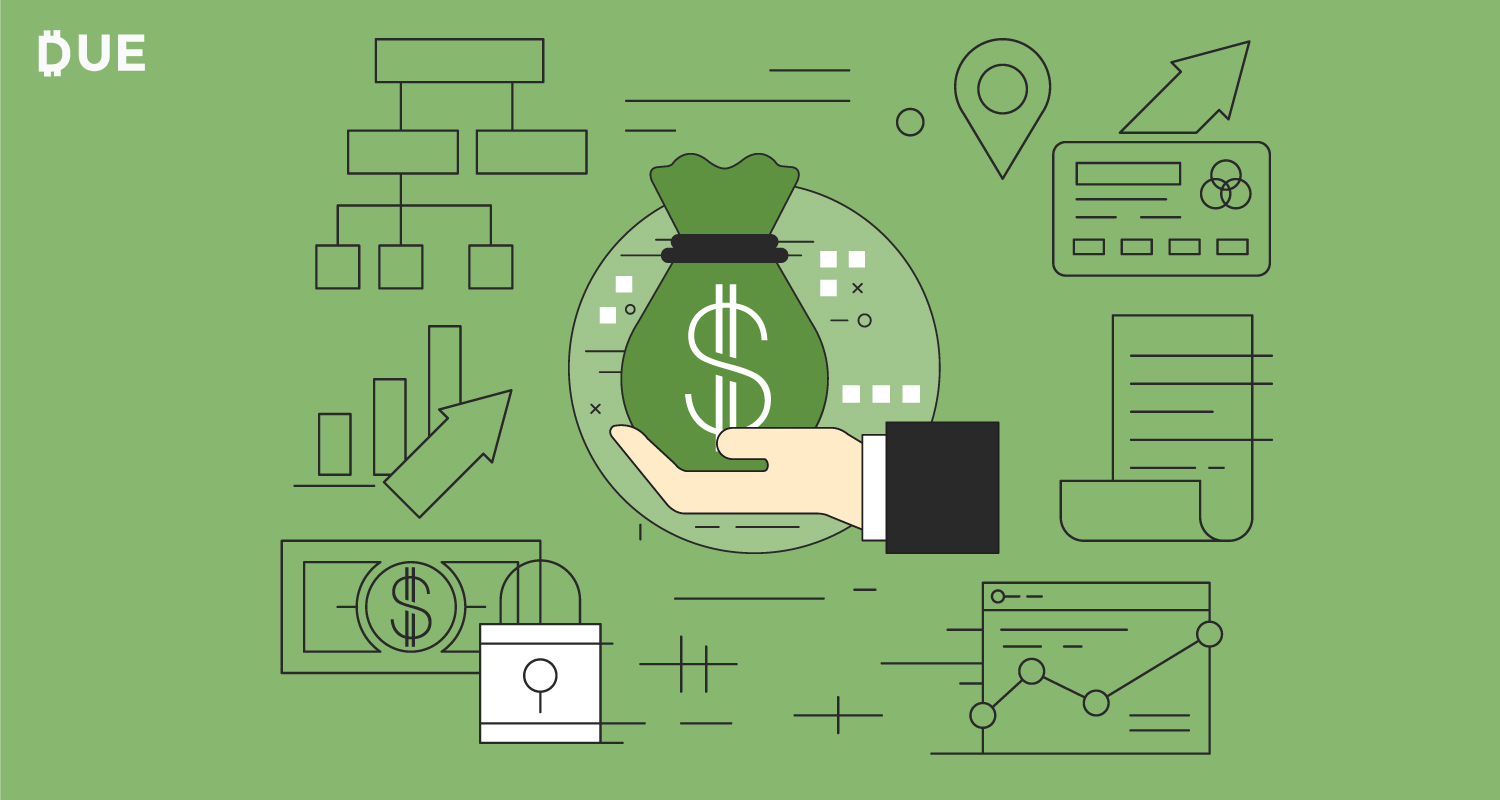There’s nothing routine about freelance work. Hours stretch beyond 8 to 5. Rates vary from client to client, project to project. Even once your work is done, paydays don’t always arrive on time. For these reasons and more, regular personal finance tips don’t always apply to freelancers.
The irregularity of freelance work requires a great deal of discipline in both your professional and personal finances. Without healthy financial habits, your fluctuations in earnings combined with haphazard spending can result in missed rent payments, overdrawn bank accounts, and credit card debt.
What can you do as a freelancer to fortify your financial house? Start by implementing these eight actionable personal finance tips in 2020, a year that has proven anything can happen.

Table of Contents
Toggle1. Measure your money in hours
An occasional splurge is fine from time to time, as long as it’s within reason. But if you’re rewarding yourself with unnecessary purchases every time you get paid, you’re likely neglecting other areas of your finances.
Have you ever determined how much indulgence costs in your time? Rather than measuring the value of your money in dollars, think about how many hours you had to work to pay for an impulse item. When you think about the time and hard work it took to earn that cash, it might make you think twice before letting it disappear for something that brings short-lived joy.
Similarly, don’t get carried away if you enjoy an unexpected windfall of cash. Although you may jump at the opportunity to splurge with a surprise influx, chances are it can be put to better use in your personal or professional finances.
2. Create a realistic personal budget
Freelancers have irregular income. You may strive to maintain a steady stream of earnings, but sometimes when and how much you get paid is just out of your control. As a result, certain months may be flush with cash, while others produce only a trickle.
In addition to creating a business budget, you should also have a realistic personal budget you can stick to. These two budgets will help ensure you always have enough to live on and meet financial obligations, even in your leaner months.
When creating your personal budget, it’s essential to base it on a conservative monthly income amount. Don’t use your best month’s income and hope to achieve that each month going forward. Doing so will leave you with little wiggle room when things don’t go as planned.
If you have freelanced for at least a year, you can divide your previous year’s annual income by 12 to determine your average monthly income. Make sure to budget for expenses you may not have each month, such as your quarterly tax bill.
3. Protect your ability to earn a living
If you freelance full-time, you don’t get sick days, vacation days or other forms of paid time off that traditional W2 employees may receive from their employers. If you don’t work, you don’t get paid, period.
Navigating insurance for the self-employed is no small task. In addition to finding your own health, dental, and vision insurance, you also have to consider other scenarios you may overlook if you had reliable benefits and teammates to cover for you at work.
For example, unexpected disabling events such as serious injuries and illnesses can happen to anyone at any time. What would happen if you become too sick or injured to complete your current projects?
With a sufficient financial safety net, you won’t have to worry. That’s why you should consider investing in an individual disability insurance policy to secure your source of income.
In return for the premiums you pay, your individual disability insurance policy will pay a monthly benefit to replace a portion of your lost income if you become unable to work due to a covered injury or illness. Think of it as protection for one of your greatest assets — the ability to earn a living doing what you love.
4. Fill the gaps in your health insurance
In the event of a serious injury or illness, your individual disability policy will replace a percentage of what you would earn if you were working. But the truth is, many working Americans are unable to cover their high health insurance deductibles even when they are working full-time. So how will you pay for an expensive medical condition that’s only partially covered by your health insurance and you’re out of work?
The issue of health insurance highlights the value of critical illness insurance, especially for independent workers such as freelancers. Critical illness insurance is a type of supplemental coverage that pays a one-time lump sum benefit for expensive illnesses like heart attacks, strokes, and cancer. Critical illness insurance is designed to cover costs not covered by health insurance, such as:
- Deductibles and co-pays
- Lost income from missed work
- Experimental medical treatments
- Care from out-of-network providers
- Everyday living expenses
It’s money to use wherever you need it most. Together, your individual disability and critical illness policies can help you fill the gaps in your health insurance and maintain financial stability in tough times.
5. Establish a separate account for your business
They say not to mix business with pleasure. While there are certainly exceptions, how you handle your finances is not one of one them. As a freelancer, it’s best to keep your personal and professional finances separate.
Your business account is where you can deposit your payments. Based on your budget, you can then set a salary and transfer your “paycheck” into your personal account. Pay business expenses from your business account and your household bills from your personal account.
While this practice may seem trivial in nature, properly structuring your personal and professional finances can make a big difference over time. Having separate accounts will also make life easier when you file your taxes.
6. Don’t fall behind on retirement savings
You may not have an employer-sponsored 401(k) or pension fund, but you still need to save for retirement. After all, just because you’re doing what you love doesn’t mean you’ll be able to do it forever.
That’s why it’s essential to be proactive about saving for retirement. While this may be one of the more apparent personal finance tips discussed here, it’s one that cannot be emphasized enough. As an independent worker, it may be easier to fall behind — and harder to play catch-up — than you think.
Freelancers can save for life after work by using an Individual Retirement Account (IRA). These plans allow people to save up to $6,000 annually. You can open one through a bank or other financial company.
Setting aside money in a tax-advantaged IRA will reduce your taxable income as well.
7. Stash some cash for emergencies, too
Just like you save for retirement, freelance workers should get in the habit of setting aside a percentage of each payment to build an emergency fund.
Your emergency savings fund is where you stash money for unexpected events. These may include medical bills, car repairs, or broken appliances. When these problems arise, an emergency fund helps you avoid racking up credit card debt. They can also help keep your business afloat.
It’s important to note that having an emergency fund is not a replacement for individual disability or critical illness insurance, and vice versa. In the event of a disability (which certainly qualifies as an emergency), your emergency fund can tie you over until your disability insurance benefits kick in. It can also supplement the lump sum you receive from your critical illness insurance policy to meet your healthcare needs.
Once you’ve accumulated a robust emergency fund, make sure it only gets used for emergencies. Avoid dipping into it for weekend trips, a new MacBook, holiday gifts, or other indulgences.
8. Use technology to work smarter, not harder
This list of personal finance tips would not be complete without a little technology advice.
From budgeting, invoicing, and cash management time-tracking and tax filing, the life of a freelancer, can be weighed down by cumbersome tasks if you’re not careful. Spending too much time managing your money can actually prevent you from having the time you need to make money in the first place.
Fortunately, technology empowers busy freelancers to spend less time on tedious tasks so they can focus on doing what they do best for their clients. The latest mobile apps, software, and other online tools don’t just save you time; they often provide access to valuable information at your fingertips to help you make better use of your money.
While some lines of work rely more on technology than others, every freelancer should keep a digital toolbox handy. The digital toolbox will help ensure that you are working as efficiently and effectively as possible.
Final thoughts
In a year that has been anything but typical, it’s essential to keep a close eye on your personal finances. Dedicate some of your extra time spent at home to review your current income, expenses, savings, and insurance. Be honest with yourself about what you are doing well and what you could be doing better. By implementing some or all of these eight actionable personal finance tips, you will be well on your way to fortifying your financial house so you are prepared for whatever the future holds.
Related: [6 Money Making Mistakes Freelancers and the self-employed make]















